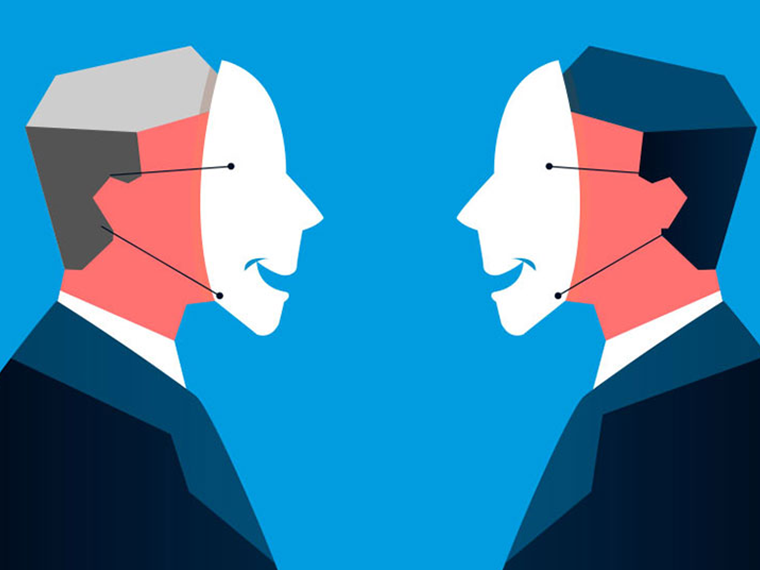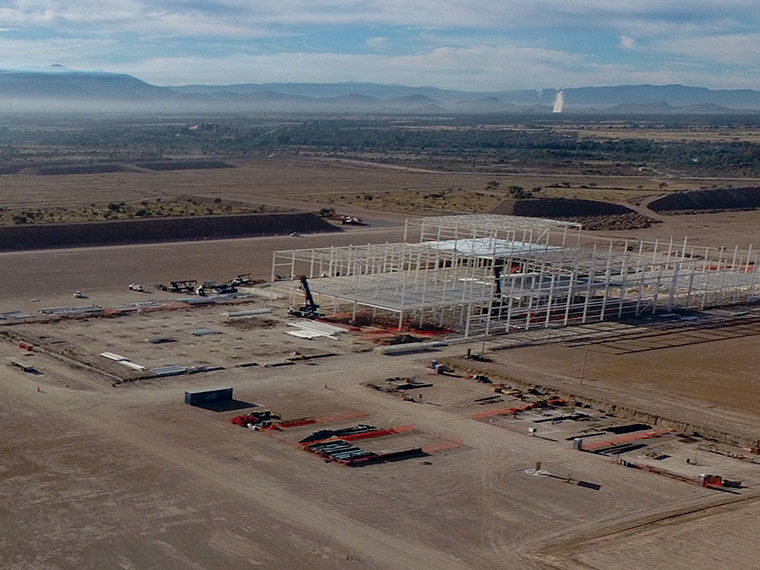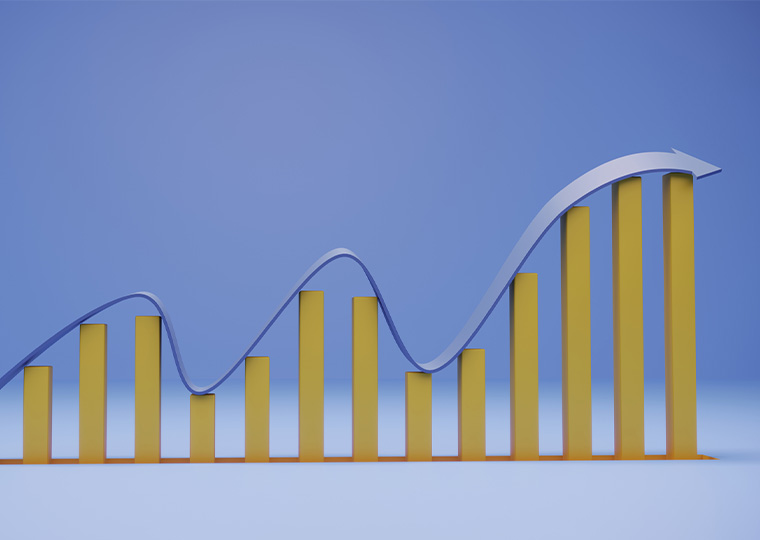A simple message with a behavioral nudge boosts vaccination rate
With vaccine hesitancy remaining a dangerous roadblock to achieving the societal goal of herd immunity to COVID-19, finding effective ways to appeal to those less enthused about rolling up their sleeves is now front and center.
One group, those holding out for philosophical/political/personal reasons, represents a major hurdle. But another group, people who, for a variety of reasons — procrastination, hassle factor, forgetfulness — haven’t gotten around to seeking vaccination, represent an immediate opportunity for voluntary vaccination.
There’s a Text for That
A team of researchers led by UCLA Anderson’s Hengchen Dai, Carnegie Mellon’s Silvia Saccardo and UCLA Health’s Daniel Croymans, developed real-world evidence that a cellphone text is an easy, low-cost way to nudge some of these stragglers into action. Dai, Saccardo and Croymans’ co-authors are Maria A. Han and Sitaram Vangala of UCLA’s David Geffen School of Medicine, Lily Roh and Naveen Raja of UCLA’s Office of Population Health and Accountable Care, Hardikkumar Modi and Shital Pandya of UCLA’s Office of Health Informatics and Analytics, and Michael Sloyan of UCLA’s Department of Information Services and Solutions.
Opt In to the Review Monthly Email Update.
In a paper published in the journal Nature, a randomized control trial involving nearly 100,000 patients of the UCLA Health system found that a simple text reminder boosted appointment setting and vaccination rates. Moreover, a text that specifically appealed to psychological ownership was especially effective in boosting uptake.
The study focused solely on patients in the UCLA Health system. The researchers used the results to estimate the potential national impact. A text reminder could spur an estimated 3.31 million to 5.68 million people to get vaccinated. If the ownership-framing nudge was deployed, uptake would increase by an additional estimated 1.42 million to 1.74 million people.
In this randomized control trial, recipients of any reminder text (delivered one day after people had been notified that they were eligible for a vaccine) set up an appointment within six days at a rate more than 80% higher than people who did not receive a text nudge. Vaccination rates four weeks later were 26% higher for people who received a text nudge.
Those who received a reminder text that leveraged psychological ownership were even more likely to take action. They made appointments at a rate nearly 95% higher than people who received no text, and four weeks later their vaccination rate was nearly 30% higher.
Making an Appeal to Ownership
The randomized trial that began in early February 2021 included a no-text control group, and everyone else received one of four different texts:
—Some people received the anodyne yet personalized message: “FIRST NAME…you can get the COVID-19 vaccine at UCLA Health” and included a link to the appointment scheduling webpage.
—Others received a text that played into the principle of psychological ownership: “FIRST NAME…a COVID-19 vaccine has just been made available to you at UCLA Health. Claim your dose by making a vaccination appointment…” Again, a link to the appointment scheduling webpage was included.
—Those two approaches were then used for two other subgroups, whose text also included a video link. The video lays out the risk and ease of transmission of the virus, as well as the safety and effectiveness of the vaccine.
In the six days following the text onslaught, all four text messages proved effective in spurring appointment setting and led to a higher likelihood of people actually showing up for their first jab. However, the texts that included the video didn’t induce any greater sign-up than the text-only messaging.
Across all four texts, more than 10% of texted patients signed up for a vaccine in the first six days that were monitored, compared with 7.2 % of a control group who weren’t texted.
The simple text was already effective, compelling 12.8% of recipients to sign up for their first shot. And the psychological-ownership framing was the most effective messaging. More than 14% of people who received the text telling them a vaccine had been set aside for them and they could now “claim” it, made an appointment.
The psychological-ownership framing also increased the vaccination rates four weeks out from the initial text reminders. More than 18% of people who got the “ownership” message received their first dose at the four-week mark, compared with 17% who received the simple text reminder. Both are significantly better than the 13.9% of people who did not receive any text.
The impact of text reminders holds across age and racial/ethnic groups.
If at First You Don’t Succeed, Nudge Again
More than a week after the initial text volley, the researchers conducted a second randomized control trial and unleashed another round of texts to those who had yet to respond to the first message. Once again, those who actually received a text with a link to the scheduling website were more apt to sign up than a control group who didn’t get any messaging.
Intentions vs. Action
In the first trial, the inclusion of the two-minute video was ineffective at persuading more people to get with the vaccination program beyond simple text without the video. Barely 1 in 5 people clicked through.
That might be of interest to policymakers mulling over how to persuade those holding out for philosophical reasons. Yet the researchers note that past research suggests that video-based information interventions can effectively change vaccination intentions. And they confirmed that fact with their own online experiments that recruited more than 2,000 participants through Amazon Mechanical Turk and Prolific Academic.
Participants required to watch the video about COVID-19 vaccination reported a higher likelihood to schedule an appointment than those who did not watch the video, but those who saw the message highlighting psychological ownership were no more likely to schedule an appointment than those who got a simple text message.
The researchers don’t have a definitive theory for why results between their real-life trial and the online experiment diverged. “These results suggest that hypothetical responses to behavioral nudges should be taken with caution,” they write.
That’s worth keeping in mind the next time you come across a survey or poll of what people say they will do.
Featured Faculty
-
Hengchen Dai
Associate Professor of Management and Organizations and Behavioral Decision Making
-
Daniel Croymans
Medical Director of Quality for the Department of Medicine
About the Research
Dai, H., Saccardo, S., Croymans, D.M., et. al. (in press). Behavioral nudges increase COVID-19 vaccinations. Nature. https://doi.org/10.1038/s41586-021-03843-2






